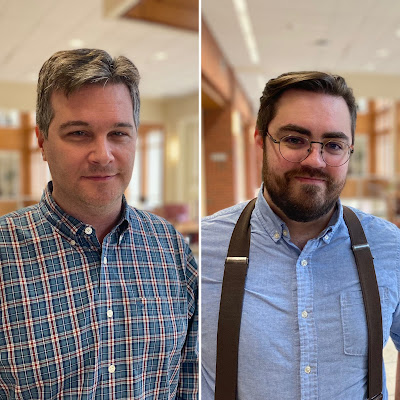OU Scientists' Experimental Research Aims to Treat Metastatic Cancer
“It is the metastasis of cancer that kills about 90% of cancer patients,” Chen said. “Pancreatic cancer is the worst of all because it metastasizes so fast. At the time of diagnosis, 80% of patients would either have local advancement or distance metastasis – where cancer has spread to other parts of the body. The five-year survival rate of the patients with distance metastatic pancreatic cancer is only about 3%.”
The five-year study is funded by an approximately $2.5 million grant from the National Cancer Institute and is led by Chen and Min Li, Ph.D., a George Lynn Cross Research Professor of Medicine, Surgery and Cell Biology and the Virginia Kerley Cade Endowed Chair in Cancer Treatment.
Li, a leading expert in pancreatic cancer research, is working with Chen’s research team in all aspects of the study, including their investigative treatment of pancreatic tumors in mice and investigation of immune responses.
Chen’s research group has developed a novel method called localized ablative immunotherapy. This technique combines the use of laser ablation, where surgeons use a laser to destroy solid tumors, and an immunostimulant drug Chen’s group has developed, administered locally (at the site of the tumor) to stimulate, enhance and direct patients’ immune response to fight cancer cells.
“It is kind of like a one-two punch,” Chen said. “When tumors are destroyed by ablation, tumor antigens and other contents from the cancer cells are released. Our novel drug can help by combining those antigens to stimulate immune cells to kill the tumor cells – not only the ones treated by the ablation but also the remaining tumor cells at the treatment site as well as the untreated metastatic tumor cells at the distant sites.”
He compares it to a kind of cancer vaccine. It doesn’t prevent cancer, but it can help the body better fight it.
“Like the vaccines against viral infections, they stimulate the immune system so that the immune system knows how to fight it,” he said. “Our treatment is a trigger to stimulate, enhance and guide the immune system – telling it what to fight and how to fight against the tumor. It behaves like a vaccine.”
Chen said their study will help improve their understanding of how this local laser ablation-immunostimulant combination can help treat many forms of metastatic cancer.
“The work we’ve done so far is preliminary, yet promising in pre-clinical studies and clinical trials,” he said. “Now we need to look into many different components of this novel therapy – the dosage, how much ablation needs to be done to produce the right effect, how much of the drug do we need to use, and to better understand the impacts on the immune system and survival rates. Immunological studies will improve our understanding of how and why the immune system responds.”
The project, Potentiating a systemic antitumor response by interstitial localized ablative immunotherapy to synergize with immune checkpoint therapy for metastatic pancreatic tumors, is funded by the National Cancer Institute, Project No. 1R01CA269897-01.
By Office of the Vice President for Research and Partnerships



